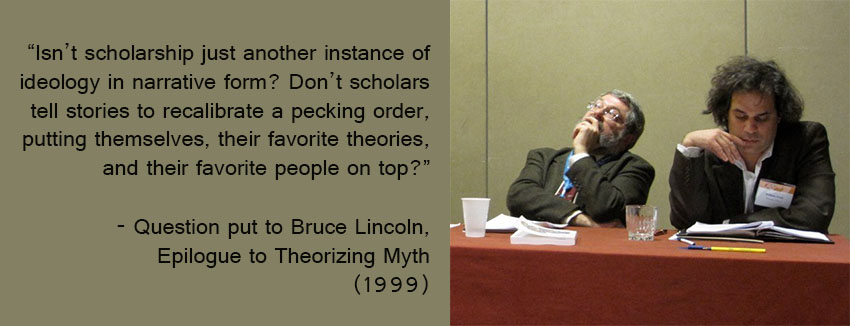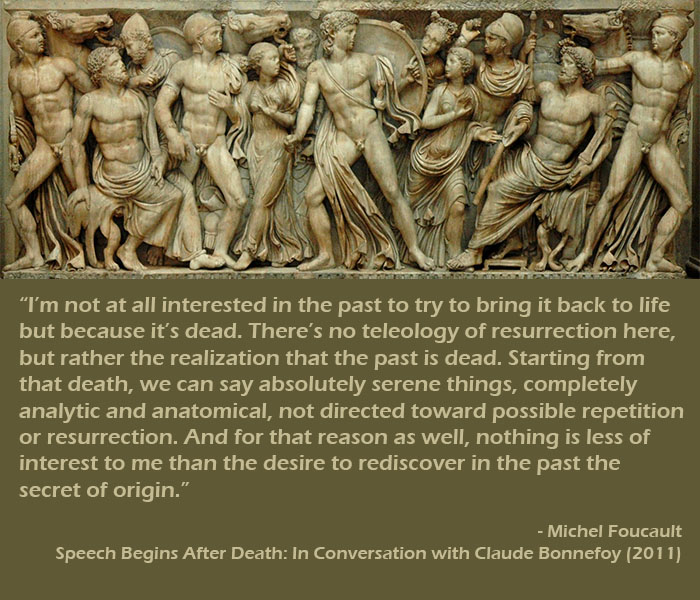 Did you see this recent article at slate.com? I think it’s fascinating — why? Well, not because of the proverbial tribe that’s been found in deepest, darkest wherever, but because of the manner in which the article itself so nicely brings to light the (likely inevitable) problems associated with coming to know anything about the world around us. For in a piece on a group of people who apparently have no numbers in their language system (or at least an inability to think of quantities larger than a few) we see a whole bunch of numbers used by the article’s author to itemize big facts. There’s around 700 of these people, we’re told; we first learned about them in 2007, in a magazine article that was — count ’em! — 12,000 words in length.
Did you see this recent article at slate.com? I think it’s fascinating — why? Well, not because of the proverbial tribe that’s been found in deepest, darkest wherever, but because of the manner in which the article itself so nicely brings to light the (likely inevitable) problems associated with coming to know anything about the world around us. For in a piece on a group of people who apparently have no numbers in their language system (or at least an inability to think of quantities larger than a few) we see a whole bunch of numbers used by the article’s author to itemize big facts. There’s around 700 of these people, we’re told; we first learned about them in 2007, in a magazine article that was — count ’em! — 12,000 words in length.
My point? Unless we privilege our language system as if it is in sync with reality itself — as happens so often, when we start talking about facts — one can’t help but see this story as a moment when two no less local systems bump into each other (something I’m thinking from my position within one of them, of course — how crazy is that?). For our ability to “think itemized quantity” is so self-evident to us that we’re perplexed by how they get along without it — the “it” here is taken as a fact of nature and not some quirky acquisition that we happen to have, of course. That is, why isn’t the article on how peculiar it is that other language systems even have numbers?
Of course we have no choice but to use local assumptions and concepts and curiosities in coming to know those we take to be our others but we too often make the mistake of failing to see these assumptions and concepts and curiosities as our tools. Instead, we (especially if we happen to be in dominant groups) speak loudly and slowly and say such things as “How do you say ‘religion’ in your language?” — as if the fact that we happen to divide up and name the world in this or that way necessarily has some corresponding dance partner in all human systems.
Whether hubris or laziness accounts for this, it’s worth mulling over that a change in attitude toward owning our assumptions and concepts and curiosities might be the first step in doing any sort of interesting work on this thing we’re calling identification.
![]()

 Read
Read  “Race” is such a problematic, complex term, no? We use it as if it refers to some stable thing (like when we complete a government form) but as soon as we look at its use more closely we realize it is a vague designation for a variety that spans a limitless continuum with no clear internal boundaries. “Race” — as in “What race are you?” — is thus our way of creating the impression of managing what may in fact be unbridled human difference, as if it has nicely defined internal compartments.
“Race” is such a problematic, complex term, no? We use it as if it refers to some stable thing (like when we complete a government form) but as soon as we look at its use more closely we realize it is a vague designation for a variety that spans a limitless continuum with no clear internal boundaries. “Race” — as in “What race are you?” — is thus our way of creating the impression of managing what may in fact be unbridled human difference, as if it has nicely defined internal compartments. Looking for a Culture on the Edge button while at the annual meeting of the American Academy of Religion/Society of Biblical Literature next week? Then consider stopping by the book display and finding the Equinox Publishers booth. There’s bound to be some there.
Looking for a Culture on the Edge button while at the annual meeting of the American Academy of Religion/Society of Biblical Literature next week? Then consider stopping by the book display and finding the Equinox Publishers booth. There’s bound to be some there. And while you’re there, consider whether your own work fits the larger project that we’re working on, here at the Edge. We have a
And while you’re there, consider whether your own work fits the larger project that we’re working on, here at the Edge. We have a 
 Retronaut recently posted a little Roman Catholic devotional booklet from 1927, “
Retronaut recently posted a little Roman Catholic devotional booklet from 1927, “ You know you want one.
You know you want one. Did you see this recent article at
Did you see this recent article at  Learn
Learn  The Pew Research Center has a blog, named the
The Pew Research Center has a blog, named the  Read
Read